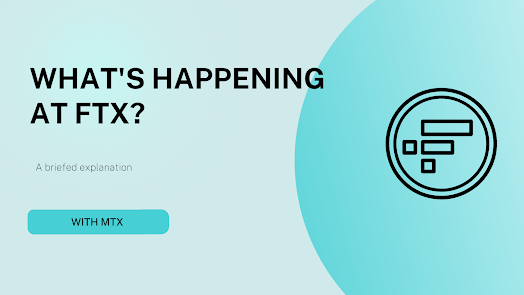"Mining" is the process by which specialised computers generate and release new Bitcoin and verify new transactions.
For Bitcoin and other cryptocurrencies, mining is the process by which new coins are created and transactions are verified. Blockchains, the virtual ledgers that record cryptocurrency transactions, are verified and secured by a network of computers across the globe. Computers on the network receive new coins for donating their processing power. Miners maintain and secure the blockchain, which awards coins, and the coins incentivize miners to keep up the good work of maintaining and securing it.
What's the deal with mining?
In order to acquire bitcoin and other cryptocurrencies, there are three primary methods. Bitcoins can be purchased on an exchange such as MTX, used as payment for goods or services, or mined in the virtual world. We'll use Bitcoin as an example to illustrate the third category we're discussing.
You may have thought about trying your hand at bitcoin mining. Today, only those with high-quality computers can participate. However, as the blockchain's popularity has grown, so has the amount of computing power required to keep it running. Mining one bitcoin today requires 12 trillion times more computing power than when the first blocks were mined in January 2009, when the first bitcoins were mined. Bitcoin mining is no longer profitable for hobbyists because of this. Almost all mining nowadays is done by specialised companies or groups of people who pool their resources. However, understanding how it works is still beneficial.
Each new bitcoin transaction is verified and recorded using specialised computers, and the blockchain's security is ensured as a result. It takes a lot of computing power to verify the blockchain, which is donated by miners.
The operation of a large data centre is analogous to that of a bitcoin miner. Hardware is purchased by companies, and electricity is paid for by the companies to keep it running (and cool). Coins mined here must have a higher value than the cost of mining them in order for this to be worthwhile.
What is it that drives underground miners?
A raffle is held by the network. "Hash" is a 64-digit hexadecimal number that every computer on the network is racing to guess first. It is more likely that a miner will be rewarded if his computer can generate guesses more quickly.
All newly verified transactions are added to the blockchain ledger by the winner, who receives a predetermined amount of newly minted bitcoin as a reward for their efforts. (This occurs about once every ten minutes on average.) The reward was 6.25 bitcoins as of the end of 2020, but it will be halved in 2024 and then every four years after that. Even though the difficulty of mining is increasing at an ever-increasing rate, the reward will keep decreasing until there are no more bitcoins to mine.
Only 21 million bitcoins will ever be created. In theory, the final block will be mined in 2140. When this happens, miners will no longer be compensated with newly issued bitcoin, but rather with the transaction fees they charge.
What's the point of mining?
Bitcoin (and many other cryptocurrencies') security is dependent on mining, which does more than just create new coins for circulation. Cryptocurrencies can operate as a peer-to-peer decentralised network without the need for a third party to oversee their transactions because it verifies and secures the blockchain. In addition, it provides miners with an incentive to contribute their computing power to the network.






.jpg)
